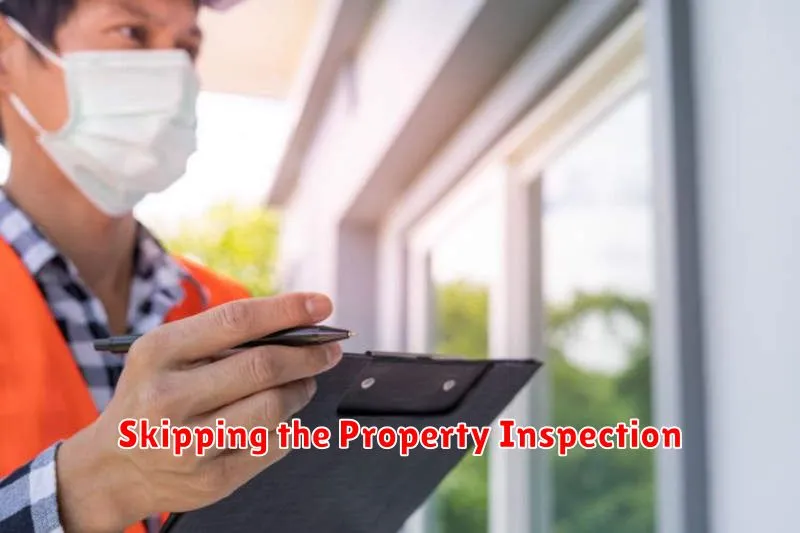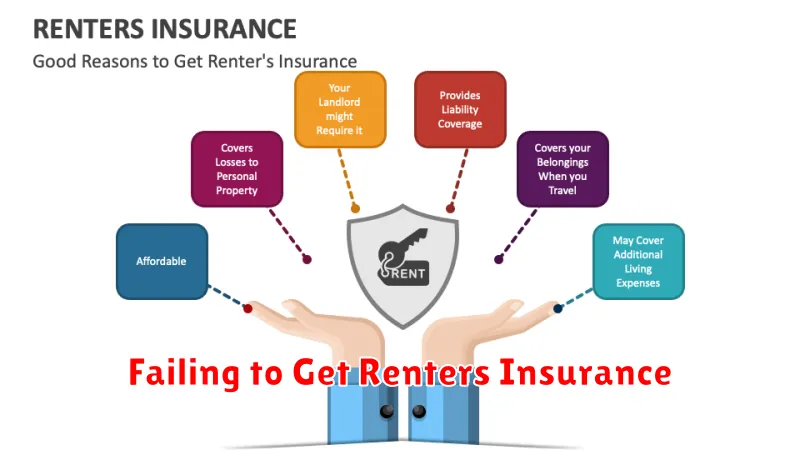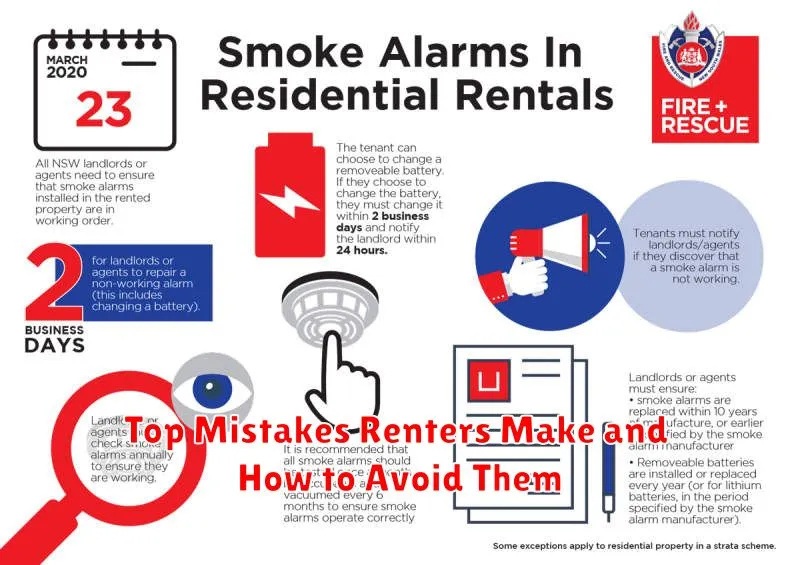Renting a property can be an exciting yet complex process. Many renters, especially first-timers, are often unaware of common pitfalls that can lead to financial strain, legal disputes, and overall dissatisfaction with their renting experience. This article addresses the top mistakes renters make and provides practical advice on how to avoid these common renting pitfalls. Understanding these renting mistakes and taking proactive steps can save you significant stress and money in the long run, ensuring a smoother and more positive rental journey. From neglecting to thoroughly read the lease agreement to overlooking crucial details during property inspections, we’ll cover the essential information every renter needs to know.
By understanding the most common mistakes renters make, you can empower yourself to make informed decisions and protect your rights as a tenant. We’ll explore everything from the initial stages of searching for a rental property to moving out and everything in between. This comprehensive guide will highlight the common renter mistakes related to lease agreements, security deposits, communication with landlords, property maintenance, and more. By avoiding these renting errors, you can foster a positive landlord-tenant relationship and ensure a more enjoyable and stress-free rental experience. Are you ready to learn how to navigate the rental market with confidence and avoid costly mistakes? Let’s dive in.
Not Reading the Lease Carefully
One of the most common and costly mistakes renters make is not thoroughly reading their lease agreement before signing. A lease is a legally binding contract, and failing to understand its terms can lead to unexpected expenses, disputes with your landlord, and even eviction.
Key areas to pay close attention to include the length of the lease term, the amount of rent and when it’s due, pet policies, rules regarding guests, and the responsibilities for maintenance and repairs. Look for any clauses about early termination fees, late rent penalties, and procedures for resolving disputes.
Don’t hesitate to ask questions if anything is unclear. It’s much better to clarify concerns upfront than to face problems later on. If necessary, seek legal counsel to review the lease before signing. Understanding your rights and responsibilities as a tenant is crucial for a successful rental experience.
Skipping the Property Inspection

One of the most crucial steps in the renting process, often overlooked, is the property inspection. Failing to thoroughly inspect a property before signing a lease can lead to significant issues down the road.
A detailed inspection helps protect both the renter and landlord. For renters, it’s the opportunity to document any pre-existing damage and avoid being held responsible for it later. Carefully examine everything from appliances and plumbing to walls and flooring, noting any imperfections. Take photos or videos as visual documentation.
Use the inspection report as a negotiating tool. Request repairs for any damage found before moving in. This prevents disputes and ensures a comfortable living space from day one. Skipping this step might mean inheriting problems and potentially facing repair costs yourself.
Ignoring the Neighborhood
One of the biggest mistakes renters make is focusing solely on the property itself and neglecting the surrounding neighborhood. A beautiful apartment in a less desirable location can quickly lead to dissatisfaction.
Safety is a paramount concern. Research crime statistics and talk to potential neighbors to get a feel for the area’s security.
Consider your commute. How long will it take to get to work, school, and other frequent destinations? Factor in traffic at different times of day.
Amenities are also essential. Are there grocery stores, restaurants, parks, and other services within walking distance or a short drive? Think about your lifestyle and what conveniences are important to you.
Finally, assess the overall atmosphere. Is it a quiet, family-friendly neighborhood, or is it bustling with nightlife? Choose a neighborhood that aligns with your preferences.
Failing to Get Renters Insurance

One of the biggest mistakes renters make is failing to obtain renters insurance. Many renters mistakenly believe their landlord’s insurance covers their belongings. This is incorrect. A landlord’s policy typically only covers the building structure, not the renter’s personal property.
Renters insurance provides crucial financial protection against a variety of risks, including:
- Theft: Covers the cost of replacing stolen items.
- Fire Damage: Protects against losses due to fire.
- Water Damage: Covers damage from burst pipes or other water sources.
- Liability: Protects you if someone is injured in your apartment.
Renters insurance is surprisingly affordable and provides significant peace of mind. The cost is a small price to pay compared to the potential expense of replacing all your possessions.
Overlooking Maintenance Responsibilities
Many renters misunderstand their maintenance obligations. While landlords are responsible for major repairs, tenants typically bear responsibility for routine upkeep. Failing to understand and fulfill these duties can lead to disputes with landlords and potentially financial penalties.
Common renter maintenance responsibilities often include replacing air filters, maintaining cleanliness, addressing minor plumbing issues (like clogged drains), and reporting necessary repairs promptly. Neglecting these seemingly small tasks can lead to larger, more costly problems down the line, for which the renter might then be held accountable.
Carefully review your lease agreement. It explicitly outlines the responsibilities of both landlord and tenant. If anything is unclear, discuss it with your landlord immediately to avoid misunderstandings and potential conflict later on.

